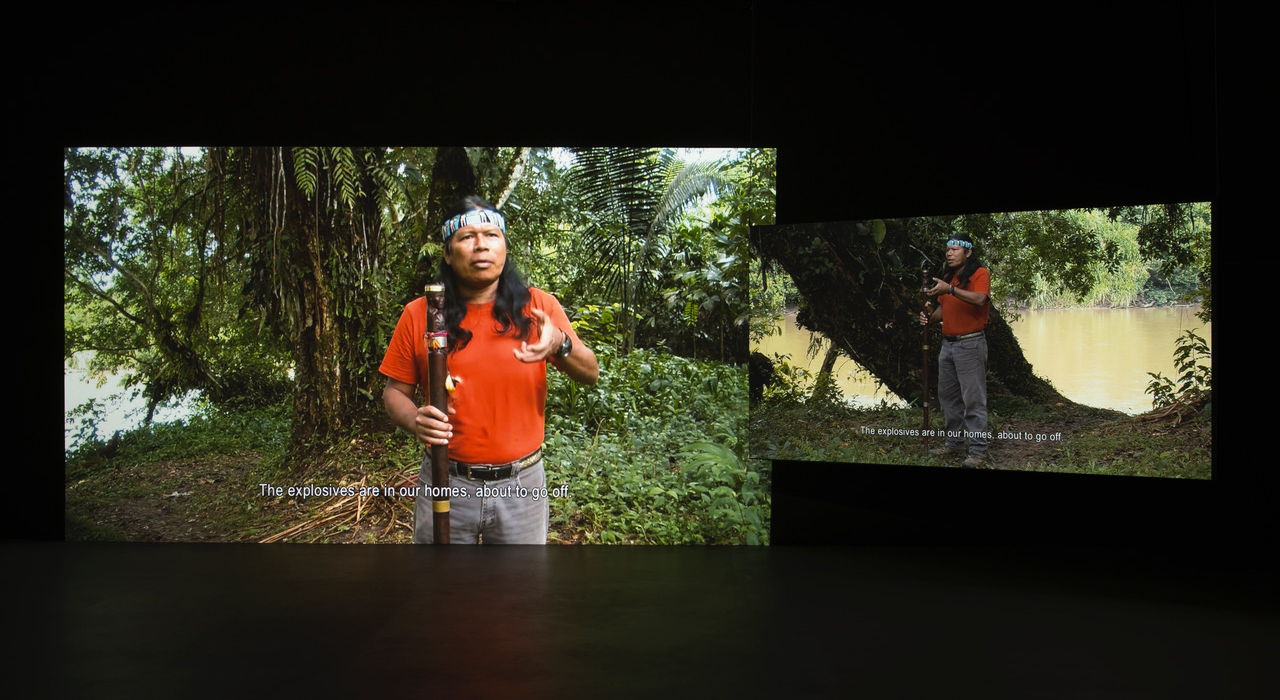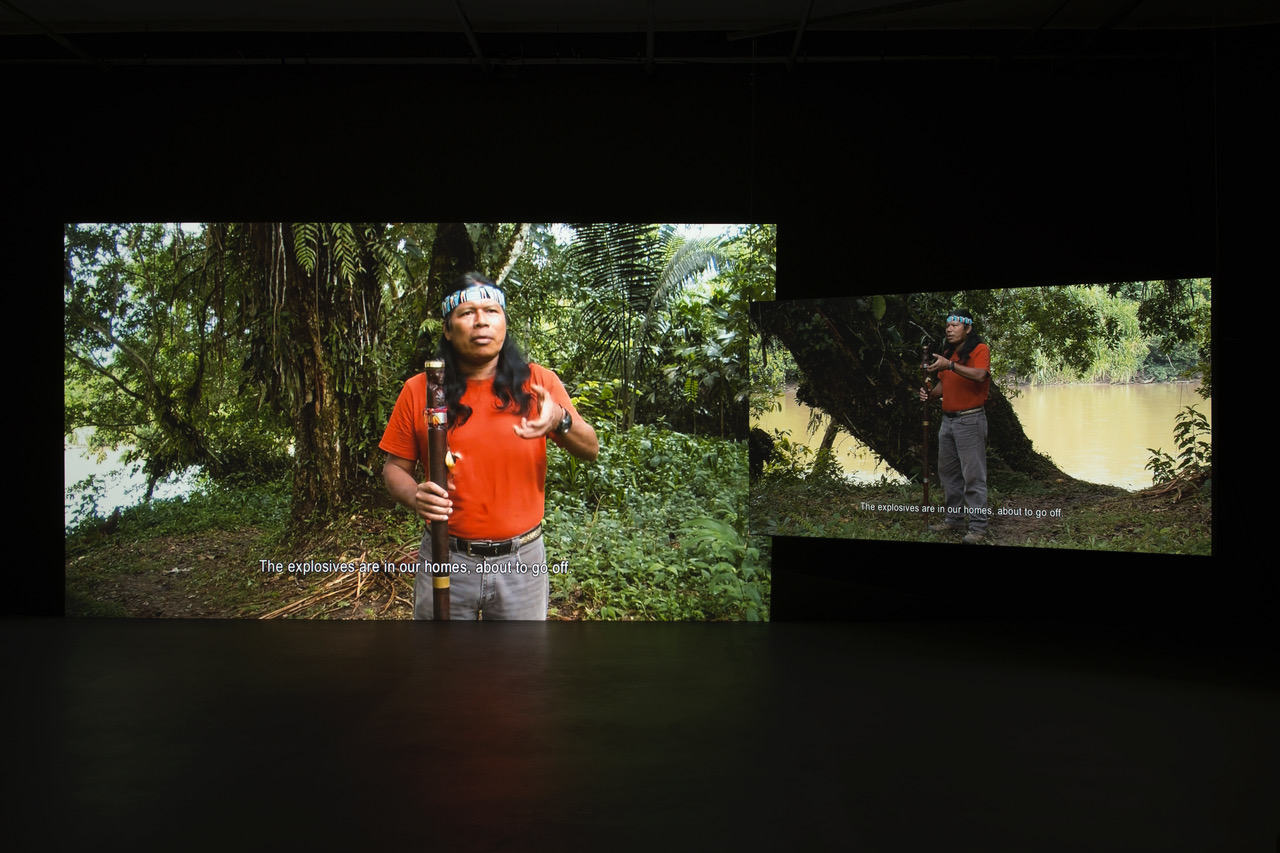Institute of the Arts & Sciences Announces Winter Exhibitions
Mia Eve Rollow & Caleb Duarte: EDELO and Levester Williams: Our Bedrock Exhibition Dates January 31 - April 6, 2025Opening Reception Friday...



Ursula Biemann and Paulo Tavares
Forest Law
Mary Porter Sesnon Art Gallery
October 3 – December 1, 2018
Opening: October 3, 5-7 p.m.
Extended remarks by art historian and theorist T.J. Demos at 6 p.m.
The opening is FREE and open to the public.
Forest Law, 2014, is a 38-minute, 2-channel video installation and photo/text assemblage drawn from research carried out by Biemann and Tavares in the Ecuadorian Amazon. It considers the legal cases which plead for the rights of nature against the dramatic expansion of large-scale extraction activities in the region, including the trial won by the indigenous people of Sarayuku based on their cosmology of the living forest. The project creatively maps the historical, political, and ecological dimensions of these trials on behalf of the forest and the people who cultivate the forest, tracing the entanglements and frictions between the ethical and epistemic stakes these cases raise.
The project was a commission by the Broad Art Museum at Michigan State University. It includes the bilingual artist book Forest Law – Selva juridica. Forest Law has been exhibited at the Sao Paulo Biennial 2016 and the Sharjah Biennial which opened in March 2017.
Ursula Biemann is an artist, researcher and video essayist based in Zurich. Biemann’s work explores uneven resource distribution, climate change, and the ecologies of oil and water as principles of the planetary organization of power. Paulo Tavares is an architect and urbanist whose work deals with the visual and spatial politics of territorial conflicts and climate change in the Amazon and other frontiers across the third world. Tavares is based in Quito, Ecuador.
T.J. Demos is Professor in the Department of the History of Art and Visual Culture, University of California, Santa Cruz, and Founder and Director of its Center for Creative Ecologies. He writes widely on the intersection of contemporary art, global politics, and ecology and is the author of numerous books, including Decolonizing Nature: Contemporary Art and Political Ecology (Sternberg Press, 2016), Against the Anthropocene: Visual Culture and Environment Today, (Sternberg Press, 2017), and The Migrant Image: The Art and Politics of Documentary During Global Crisis (Duke University Press, 2013)—winner of the College Art Association’s 2014 Frank Jewett Mather Award.